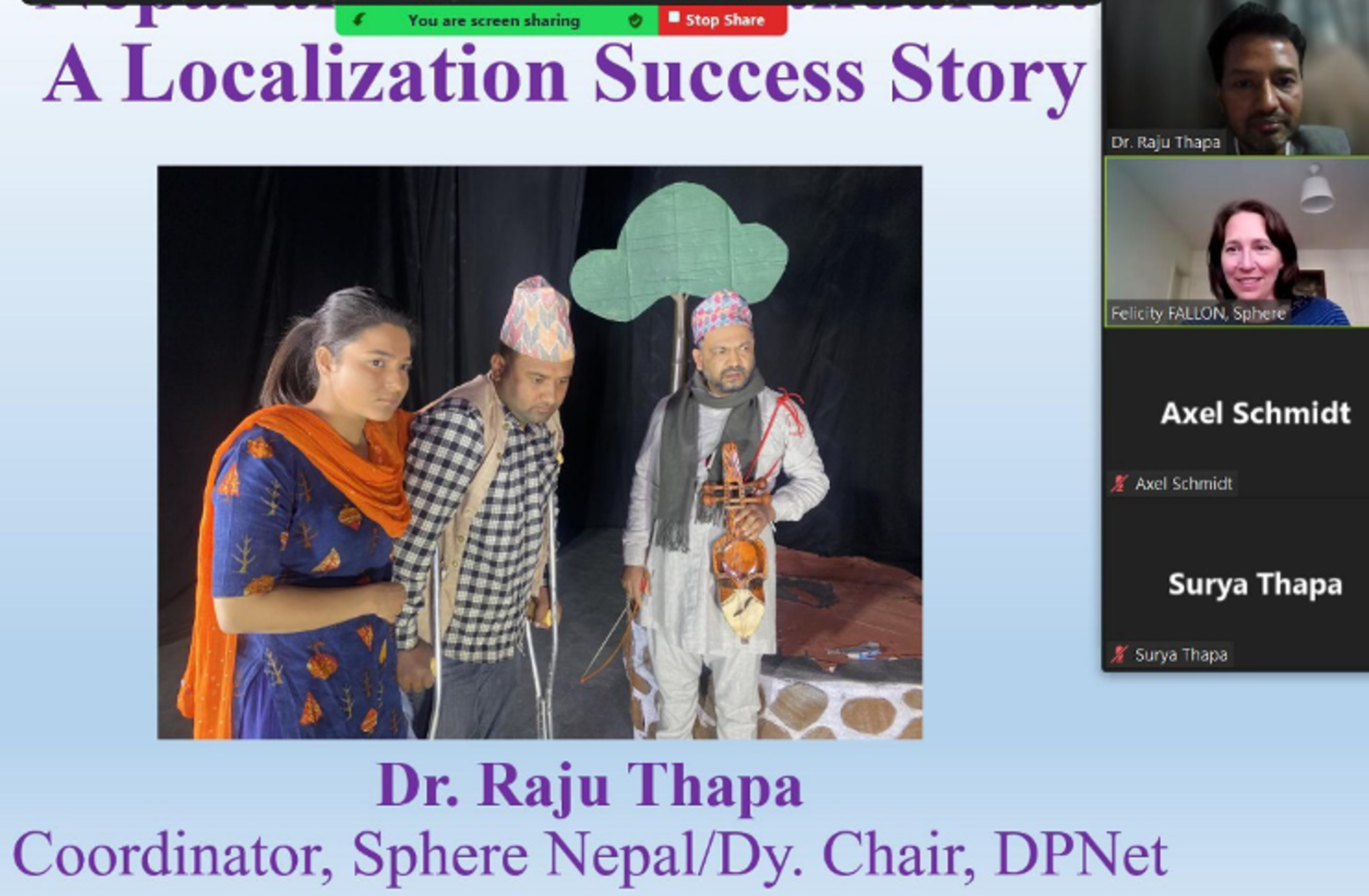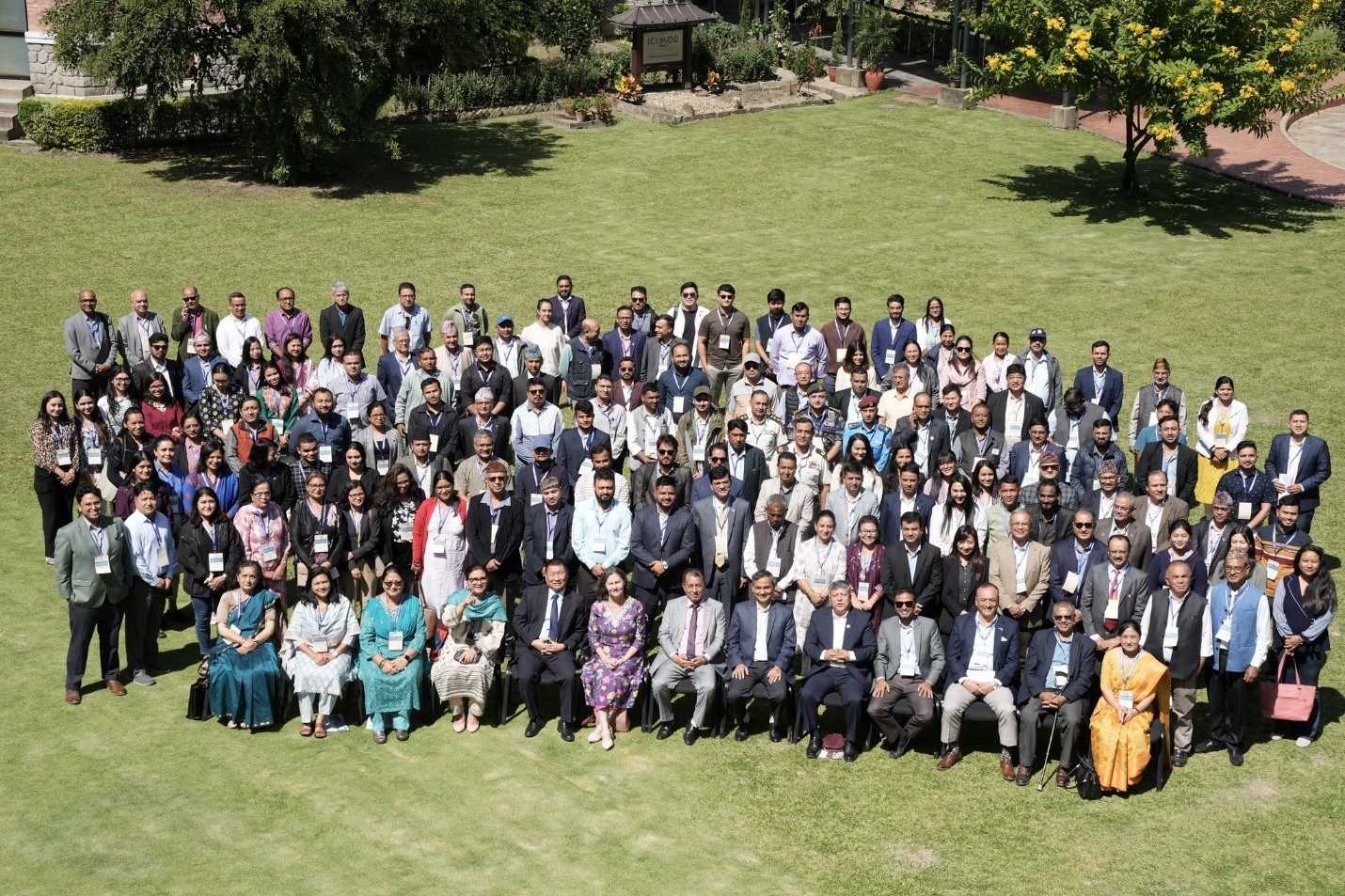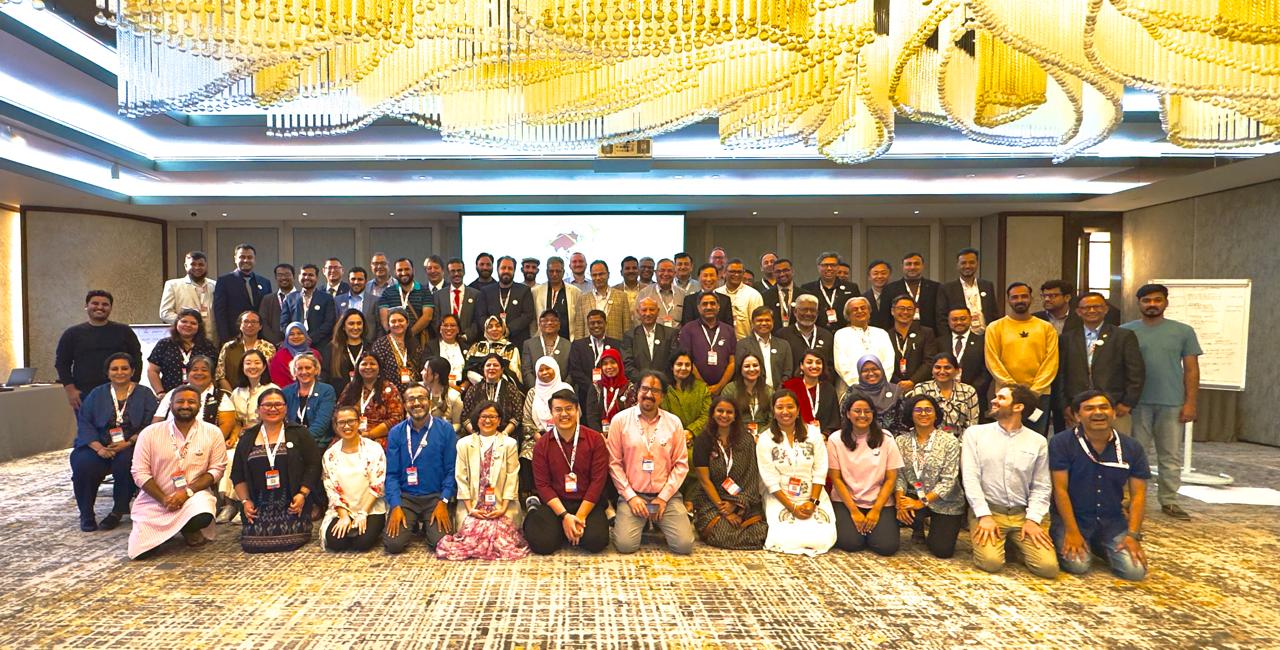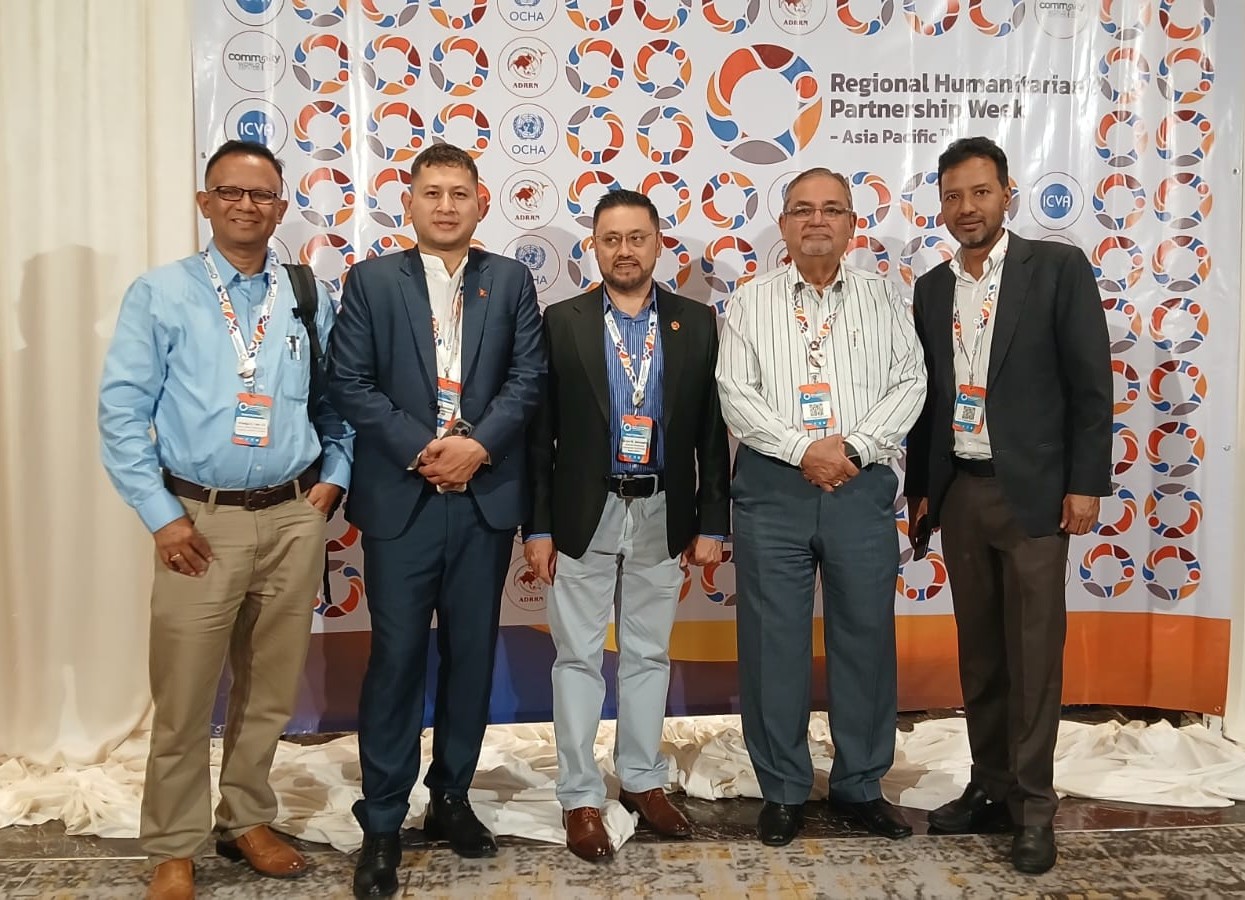Nepal's Localization of Sphere Standards Applauded at Humanitarian Networks and Partnerships Week

April 18, 2023, During the online Humanitarian Networks and Partnerships Week (HNPW), Dr. Raju Thapa, Vice Chair and Coordinator of Sphere Nepal, shared the country's success in localizing and implementing Sphere Standards. Sphere Geneva supported the event, with Felicity Fallon highlighting the session's objectives.
Nepal is highly susceptible to natural disasters, being the 20th most disaster-prone nation worldwide, with an 11th place ranking in earthquake risk and 30th place ranking in flood risk. The localization of Sphere Standards plays a critical role in effective disaster response and resource management in the country. Disaster Preparedness Network (DPNet) provide Secretariate for Sphere Nepal which also act as the focal point for Sphere Geneva. Sphere Nepal under DPNet has been conducting various activities to institutionalize and localize Sphere Standard. One of the keys to Nepal's success in localizing Sphere Standards has been the establishment of a Basket Fund incorporating stakeholders from various sectors. By engaging these stakeholders and fostering a sense of collective ownership, Sphere Nepal has ensured that the standards are implemented and embraced at all levels of society. This collaborative effort has allowed them to pool resources, share knowledge, and unite diverse groups in pursuit of a common goal: to enhance Nepal's capacity to respond to disasters and support the well-being of communities.
Under the leadership of the Ministry of Federal Affairs and General Administration (MoFAGA), 2,500 Sphere Handbooks were distributed to all 753 Local Governments in Nepal in support of DPNet, UNICEF and UN IOM. Over 600 DRR trainers received copies of the handbook, and 19,500 newly elected Local People Representatives were sensitized on Sphere Standards through 753 DRR Localizations Training Programs held in every Local Government area. The localization of Sphere Standards has involved various stakeholders, including government and non-government organizations, communities, media, academia, and the private sector, fostering a sense of collective ownership. Indigenous methods, such as street dramas, folk songs, and literature, have been used to raise community awareness of Sphere Standards. International and national training programs have been conducted to ensure adequate human resources for effective implementation. In 2023, Sphere Nepal plans to maintain and strengthen collaborative relationships with stakeholders. The organization also aims to identify cost-effective and innovative ways to spread knowledge on Sphere Standards throughout Nepal and translate the remaining Sphere Companion Standards.
Participants appreciated Nepal's localization efforts and raised questions about putting training into practice and the implications of indicators and guiding principles at the community level. Dr. Thapa shared that the 2015 earthquake, 2017 flood, and recent pandemic highlighted the importance of Sphere Standards for local communities and leaders. The massive localization training enhanced their empirical learning, and Sphere Standards are now considered vital in managing chaotic crisis situations in Nepal. Dr. Thapa explained that simulation exercises have been conducted to clarify confusion about specific indicators, such as the number of toilets and the area per person in temporary shelters. These exercises have helped stakeholders understand the practicality of Sphere Standards. Lastly, Felicity Fallon thanked all participants and concluded the session.
Please click on the link below to view the program video.
https://www.youtube.com/playlist?list=PLfb1NgQXCWhhUF9lO3iLLUpMe6O3aB1Hm











